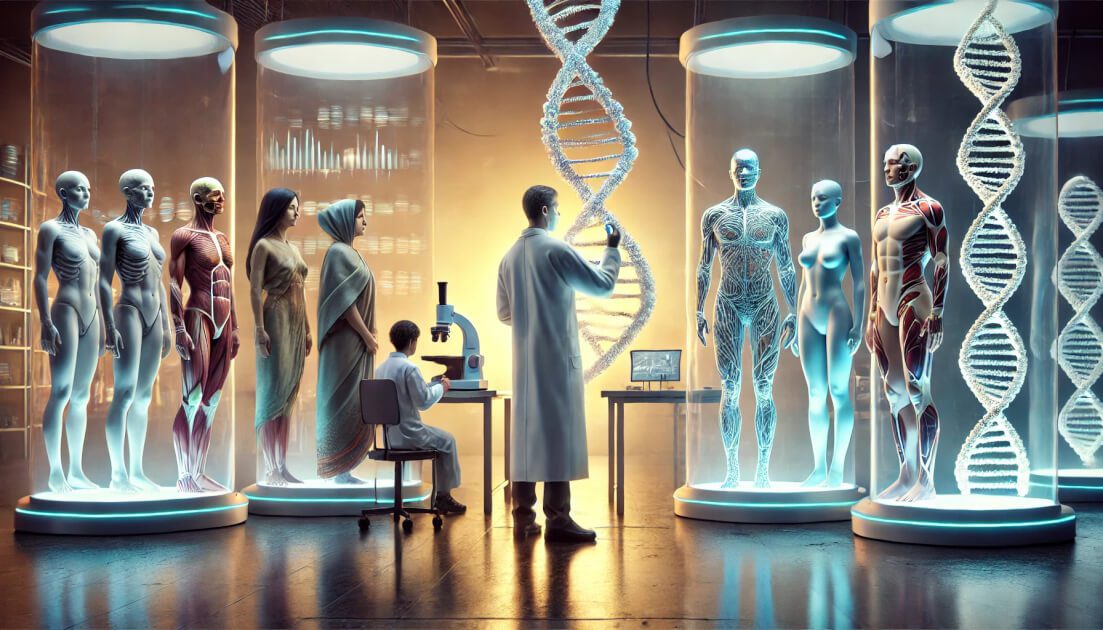Bioengineering Ethical Considerations: Are We Fixing Problems or Creating New Ones?
Bioengineering sounds like something out of a futuristic thriller. Lab-grown organs, DNA editing, bacteria trained to clean up oil spills. It is all happening. The big question is not whether we can do these things anymore. It is whether we should. As with most technological advances, bioengineering ethical considerations are becoming impossible to ignore. Who decides what genetic modifications are acceptable? Will this lead to designer babies with pre-selected IQs and perfect hairlines? More importantly, will neurodivergent traits be seen as something to fix rather than understood as a natural variation of human wiring?
Before we all panic and assume humanity is about to be genetically optimised into an army of perfectly symmetrical, hyper-efficient robots, let’s take a proper look at bioengineering ethical considerations, what is genuinely exciting, and what might have us questioning whether we are playing with fire.
Fixing What is Broken or Changing What is Human?
One of the most obvious benefits of bioengineering is its ability to cure or prevent genetic diseases. Conditions like cystic fibrosis, sickle cell anaemia, and certain hereditary cancers are already being targeted with gene therapy. For many, this is life-changing science that can end generational suffering.
Unlock peak brain performance with science-backed biohacks. Join free now & get your guide for just £4.99 (45% off)!

But where is the line between treating illness and enhancing human ability? If we can eliminate genetic disorders, what stops us from editing traits that are not medical issues but simply variations of human diversity?
This is where neurodivergence enters the conversation. If bioengineering can modify genes linked to conditions like ADHD or autism, does that mean they will eventually be seen as something to remove rather than understand? Plenty of neurodivergent people argue that their traits are part of who they are, not something that needs to be erased.
Think of it like the difference between a violin and an electric guitar. Both create music. Both are capable of complexity, brilliance, and emotion. They simply work in different ways. Nobody is arguing that we should genetically modify violins to sound more like electric guitars. Yet when it comes to human cognition, there is a growing push to “standardise” brains into one supposedly optimal mode of thinking.
It is one thing to prevent debilitating medical conditions. It is another to decide what counts as an “ideal” human brain when the reality is that diversity fuels innovation, creativity, and progress.
CRISPR: Miracle Tool or Pandora’s Box?
Gene-editing technology like CRISPR is already being used in medical trials. Scientists can now cut, replace, and edit DNA like a text document, and in some cases, cure genetic conditions before birth. This is where things start getting ethically messy.
On one hand, CRISPR could wipe out certain diseases forever. On the other, the ability to edit DNA means someone, somewhere, will inevitably try to create a “better” human. Strength, intelligence, memory, focus, appearance… if all of these can be enhanced, bioengineering ethical considerations become even more urgent.
The bigger issue is that we are still figuring out the long-term effects. Changing one gene might have unintended consequences. Editing the genes linked to ADHD, for example, could eliminate hyperactivity but also affect creativity and problem-solving ability. There is no way to know for sure until it is too late.
Bioengineered Organs and Body Parts: Progress or Just Sci-Fi?
Lab-grown organs are a real thing. Scientists have successfully grown mini human livers, kidneys, and even beating heart tissue in a lab. The idea is that one day, people waiting for transplants will not need to rely on donor lists but can simply have a new organ printed for them that won’t be rejected by their body.
Prosthetics have also advanced, with brain-controlled robotic limbs already helping amputees regain movement. There are even researchers working on growing limbs using bioengineered tissue. This is the side of bioengineering ethical considerations that feels less controversial and more like pure medical innovation. No ethical dilemmas, just science being actually useful.
Bioengineering Ethical Considerations: What About the Less Exciting (But Still Important) Stuff?
Not all bioengineering is about humans. Some of the biggest advancements are happening in agriculture and environmental science. Crops are being genetically modified to withstand climate change. Bacteria are being engineered to clean up oil spills and plastic waste. Meat is being grown in labs to reduce reliance on factory farming.
It might not be as dramatic as DNA editing, but these developments could be just as important for the future of the planet. If we are going to play around with biology, we might as well use it to fix the mess we have already made.
Where Do We Go From Here?
The reality is that bioengineering ethical considerations are not going anywhere. As technology advances, so do the ethical dilemmas that come with it. Are we using bioengineering to cure disease, reduce suffering, and save the environment? Or are we sleepwalking into a world where perfection is engineered, and diversity is erased?
Regulations exist to prevent absolute chaos, but technology moves faster than bureaucracy. The ethical lines are blurry, and we need to figure out what kind of future we actually want before we accidentally stumble into one we cannot undo.
Join Our Community & Let’s Talk About Bioengineering Ethical Considerations
Want to stay ahead of the next big breakthroughs without worrying about whether you will be genetically optimised out of existence? Join the community and have your say. No DNA modifications required.







